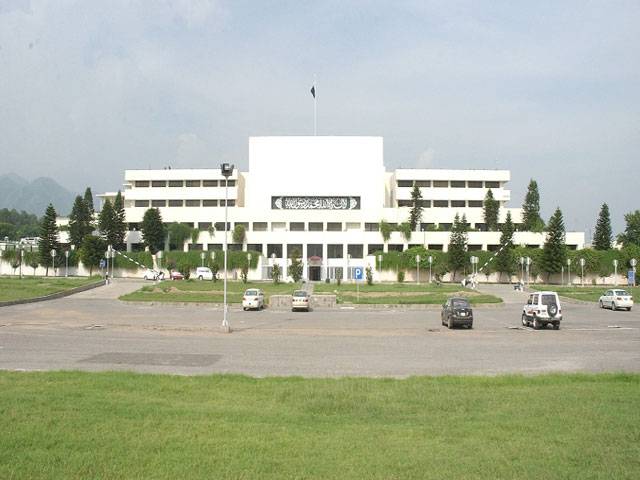ISLAMABAD – Speakers at a seminar have urged the government to hold the passage of the Plant Breeder’s Rights (PBR) Bill 2010 and leave it for the next elected assembly to consider its enactment as the issue needs to be debated further and farmers must be consulted in this regard.
The Center for Culture and Development (C2D), and Sustainable Agriculture Action Group (SAAG) along with PODA and Lok Sanjh Foundation organized a seminar on Plant Breeder’s Rights (PBR) Bill 2010 here on Wednesday in collaboration with ActionAid (AA) Pakistan. The policy seminar was aimed at addressing the conflict between the genetic resources as a collective community resource and its private use through assertion of IPRs protected through PBRs.
The participants coming from all walks of life especially civil society and small farmers demanded that the present National Assembly has a very short time to consider the proposed PBR Bill 2010. The PBR legislation has serious consequences for the interests of small farmers and biodiversity along with traditional knowledge, genetic resources and folklore. The outgoing assembly has a very short time to contemplate and pass such an important legislation. Therefore, the passage of the PBR Bill 2010 should be halted for the time being and the new elected assembly should be given the opportunity to consider its enactment.
The bill has been pending for contemplation in the Parliament for the last few years. It has received renewed attention from the government, with the formation of Intellectual Property Organization (IPO), as the regulator of Intellectual Property Rights (IPRs) in Pakistan.
Notable experts on the subject from civil society organisations, representatives of the government departments and farmers spoke on the issue of PBR legislation.
Speakers highlighted the concerns of the farmers and civil society raised the demand for incorporating farmers’ rights, traditional agriculture and bio-diversity in the bill.
Dr. Shahid Zia, Executive Director, Lok Sanjh Foundation, gave a brief overview of the PBR legislation in Pakistan. He said that seed monopolies were expected under the original and existing version of the PBR Bill. He added that the present proposed bill was a replication or the reorganization of the previous draft of the 1998 PBR Bill with some cosmetic changes. Under the proposed legislation, farmers’ centuries old practice of exchange, sharing and reusing seeds may be crippled. There is need to further look into the clauses of the PBR Bill to make it more farmers friendlier than to safeguard the concerns of the seed companies.
He stressed the need for the inclusion of a damage clause in favour of farmers like the plant Breeders or seed companies. He lamented the fact that Damage clause for the benefit of the farmers is not inserted, which was widely demanded by the farmers and civil society whereas the demand of deletion of damage clause by the seed giants is accepted overnight. He further demanded that the exceptions included in the PBR Bill should be accepted as a right of the farmers.
Saeed Iqbal, Certification Officer, Federal Seed Certification and Registration Department, argued that the PBR legislation was in pursuance of Pakistan as a signatory of WTO and TRIPS.
It would help protect and promote the research for the innovation and new varieties of seeds and plants for improved per acre yields. He further maintained that the PBR legislation would help achieve the goals of food security in Pakistan. He added that the proposed legislation was important, as it would regulate illegal practices of seed mafia and companies and their monopolies in the country.
Sameena Nazir, Executive Director, PODA, appreciated the consortia of organizers for holding the consultation. She said agriculture was impossible without the contribution of women farmers. However, the proposed legislation does not refer to the concerns and requirements of the female farmers.
Dr. Nadeem Omar Tarar, Director, NCA Rawalpindi, said that passing the bill without ensuring bio-safety guidelines and farmers’ rights would be disastrous for the small farmers’ community in particular and the agriculture sector in general. He further added that all traditional knowledge and genetic resources are required to be properly documented and exclusive rights of the people must be conceded over indigenous knowledge.
He also pointed out that the Convention on Bio-diversity, of which Pakistan is one of the signatories, is referred selectively whereas all clauses which contain the rights of the people over indigenous resources are usually not quoted.
Mushtaq Gaddi, a lecturer, NIPS, Quaid-i-Azam University, highlighted the PBR bill in the perspective of political economy and said that the bill is an attempt to give rights to the multi-national corporations to exploit people and the resources of the third world. He termed the bill a form of neo-imperialism. He said that the government must be urged not to pass the bill without ensuring rights of the farmers’ community.
Friday, April 19, 2024
Speakers for leaving law making for next NA

14-member Balochistan cabinet takes oath
2:26 PM | April 19, 2024
President, PM condemn suicide blast, firing in Karachi
2:24 PM | April 19, 2024
Fly Jinnah launches another international route
2:23 PM | April 19, 2024
Interior minister directs foolproof security for Chinese nationals
2:20 PM | April 19, 2024
UNICEF to provide $20m for youth projects in Pakistan
2:04 PM | April 19, 2024
A Tense Neighbourhood
April 19, 2024
Dubai Underwater
April 19, 2024
X Debate Continues
April 19, 2024
Hepatitis Challenge
April 18, 2024
IMF Predictions
April 18, 2024
Kite tragedy
April 19, 2024
Discipline dilemma
April 19, 2024
Urgent plea
April 19, 2024
Justice denied
April 18, 2024
AI dilemmas unveiled
April 18, 2024
ePaper - Nawaiwaqt
Advertisement
Nawaiwaqt Group | Copyright © 2024





